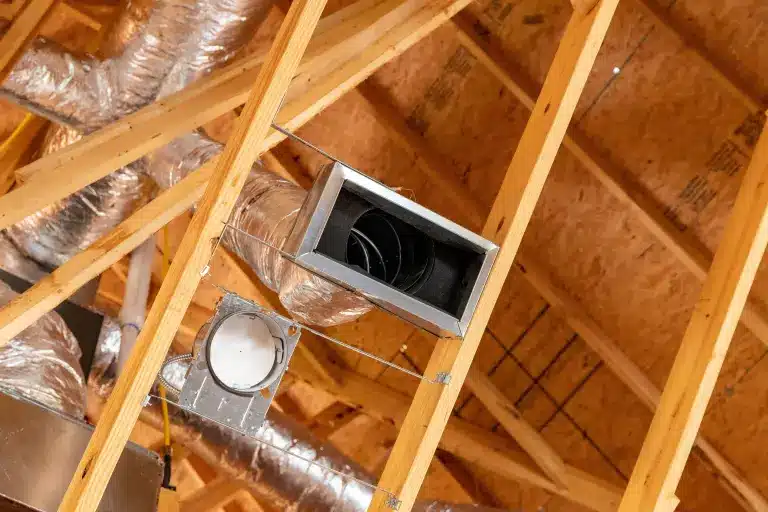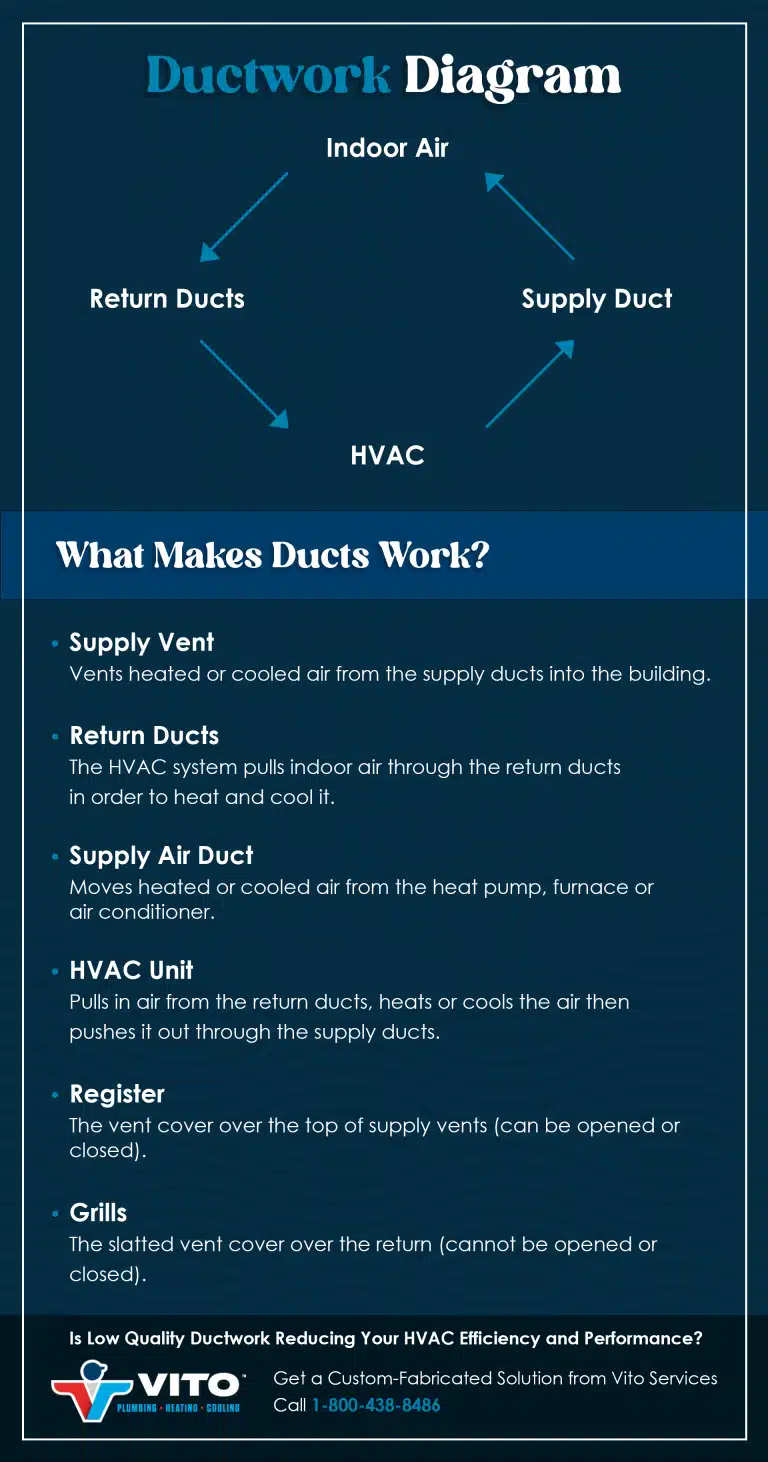
Ductwork is an essential component of a home's heating, ventilation and air conditioning (HVAC) system. It is the network of conduits that distributes the heated and cooled air from a furnace, heat pump or air conditioner and allows indoor air to circulate back for reheating or cooling via return ducts.
Proper ductwork design, material choices and maintenance play a crucial role in the overall efficiency and effectiveness of the HVAC system. Despite its importance, ductwork is often overlooked. It's out of sight and out of mind and it doesn't generally break down in the same way as a furnace or air conditioner might. It's easy to forget (and neglect) this vitally important part of your home.
WHY THE QUALITY OF DUCTWORK MATTERS
Your home's HVAC system has a couple of integral components without which temperature control would be impossible. Homeowners tend to focus a lot on the efficiency, performance and reliability of furnaces, heat pumps and air conditioners when making decisions regarding home temperature control solutions. There's no doubt those are important factors to consider, but those heating and cooling appliances are incapable of providing any kind of temperature control without ducts. (Except for ductless systems.)
Ductwork serves as the circulatory system for your home's HVAC system, ensuring cooled or heated air reaches every corner of the house. The importance of ductwork in homes cannot be overstated as it:
- Ensures proper air distribution to provide uniform temperature and air quality throughout your home
- Enhances energy efficiency, leading to lower utility bills and reduced environmental impact
- Improves indoor air quality and promotes a healthier living environment by helping to eliminate allergens, pollutants and excess humidity
- Minimizes noise from the HVAC system, creating a more peaceful and comfortable home
FACTORS THAT SHOULD INFLUENCE DUCTWORK DESIGN DECISIONS
Building size and layout: The size and layout of a home dictate the length and complexity of the ductwork system. Larger or more complex homes may require more intricate ductwork designs to ensure proper and consistent air distribution.
Local climate: Homes in the greater D.C. area are subjected to unique climatic factors. Our springs and summers can be surprisingly hot and humid with winters that inevitably feature freezing temperatures and snow. We're one of those mid-latitude states (technically the humid subtropical climate zone) that actually gets four seasons and extremes on both ends of the spectrum. In areas with extreme temperature fluctuations or high humidity, specific materials may be needed to prevent condensation and mold growth.
HVAC system capacity: The capacity of the HVAC system also plays a role in determining ductwork design and material choices. Higher-capacity systems may require larger or more robust ductwork to handle the increased air volume.
Budget: Homeowners understandably make decisions based in part on their available budget for ductwork installation or upgrades. Higher-quality materials, enhanced features or more complex designs may come with a higher price tag.
COMMON DUCTWORK PROBLEMS THAT NEGATIVELY AFFECT THE PERFORMANCE OF DUCTWORK IN HOMES
Duct leaks can cause heated or cooled air to escape into parts of the home where it's not needed (attics, crawlspaces, gaps between walls and floor joists, suspended ceilings, etc.), leading to energy loss and uneven temperature distribution. Pressure tests may be the most non-invasive way to detect leaks in inaccessible ductwork, and fixing a leak may require creating an access hole in ceilings or drywall.
Inadequate insulation around ductwork can result in heat loss in the winter or heat gain in the spring and summer, causing the furnace or air conditioner to work harder and decreasing its efficiency. Proper insulation is crucial to maintaining an efficient ductwork system.
Improperly designed ductwork may not distribute air evenly, leading to hot or cold spots in the home. Consulting with a professional HVAC technician can help ensure your ductwork is designed and installed correctly.
Blocked or dirty ducts can restrict airflow and reduce the efficiency of the HVAC system. Ducts are one of the few parts of your home that really don't need frequent maintenance and cleaning, but that doesn't mean cleaning is NEVER necessary. There are specific scenarios in which your home may greatly benefit from duct cleaning or repairs.

ARE YOU WORRIED ABOUT YOUR DUCTWORK IN D.C., ROCKVILLE OR ANYWHERE ELSE IN THE DMV?
Vito Services offers a variety of ductwork services, from complete HVAC system design and new installations to custom fabricating sheet metal ductwork. If you want to expand, modify, repair or replace your home's ductwork, we're the experts to call. Schedule a consultation or request more information by calling us at 301-315-6100 .








